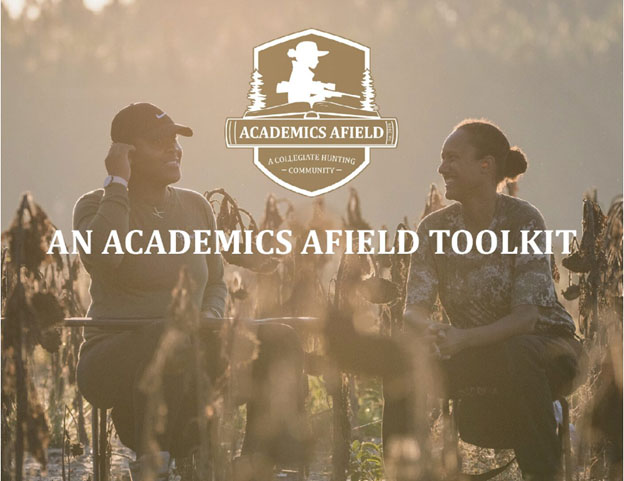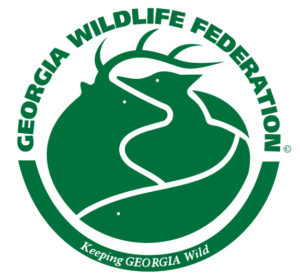 A Practitioner’s Guide and Academics Afield Toolkit
A Practitioner’s Guide and Academics Afield Toolkit
Covington, GA – Georgia Wildlife Federation (GWF) just released a comprehensive guide and toolkit outlining the benefits of engaging college students for hunter recruitment, retention and reactivation. Packed with examples and recommendations for effective programming and impact assessment research conducted by North Carolina State University, the materials will equip any practitioner with everything necessary to initiate and maintain an R3 program with their local college or university.
The Guide and Toolkit can be accessed at www.gwf.org/r3toolkit and contains case studies of five different College – Focused R3 models, including thorough evaluation of two of the models. It also contains recommendations on preparation and implementation; curriculum presentations; templates and resources for one of the models – Academics Afield.
North Carolina State University researchers Rich von Furstenberg and Dr. Lincoln Larson note that “college campuses contain many aspiring, first-time individuals who may not pursue hunting due to lack of knowledge, skills, or social support. R3 efforts can alter that dynamic and connect with students at an opportune time in their lives – a time when they are flexible, open to exploration, and eager to build social bonds. Introducing a new activity during the college years can influence a person’s life-long identity.” Their research shows that the unique characteristics of this college-aged audience, when combined with strategic implementation of a tested curriculum, can produce quality R3 outcomes.
Academics Afield is active in over 14 institutions in the US and has proven outcomes such as increasing approval for hunting and recruitment of new hunters from non-traditional backgrounds (e.g., 57% of Academics Afield participants from 2021 and 2022 were women and 29% identified as belonging to a racial or ethnic minority. Additional evaluation results demonstrated a significant decrease in barriers to participation such as, “don’t have anyone to go hunting with,” “lack of knowledge/skills required to hunt,” and “confidence in hunting skills.” In addition, Academics Afield is also a social experience with student coordinators and peer coaches.
Coral Minchey of GWF spoke to the value of this unique resource, “R3 programming with college students is a crucial component of maintaining conservation funding and ensuring that hunting remains a part of American culture. Having an R3 Guide and Academics Afield Toolkit readily available will allow R3 practitioners to spend their valuable time reviewing programs that have been tested and found beneficial based on data collected.”
Bre Bashford of GWF, who helped coordinate the effort, explained how this resource could help to transform the national landscape for R3. According to Bashford, “if we want to make hunting more inclusive and broaden the base of support, programs like Academics Afield can really help. We hope practitioners will use this resource and adopt some of the program models to enhance R3 efforts in their states.”
This project was funded by grants from the Multistate Conservation Grant program of the Sport Fish and Wildlife Restoration Programs of the U.S. Fish and Wildlife Service, jointly managed by the Association of Fish and Wildlife Agencies (WSFR# #F21AP00678, #F18AP00171 and #F19AP00094). Additional funding support came from the National Shooting Sports Foundation and Bass Pro Shops. Projects were coordinated and supported by GWF, North Carolina State University and the Georgia R3 Initiative (GA DNR – Wildlife Resources Division, GWF, National Wild Turkey Federation, Georgia Chapter of Safari Club International and Ducks Unlimited). To sponsor an Academics Afield program or to learn more visit www.gwf.org/academicsafield.
# # #
About Georgia Wildlife Federation
Georgia Wildlife Federation was founded as a sportsman’s organization in 1936 and is Georgia’s oldest conservation organization. Today, members include hunters, anglers, bird watchers, hikers, educators, and all Georgians who are interested in preserving our natural resources and outdoor heritage.

Recent Comments